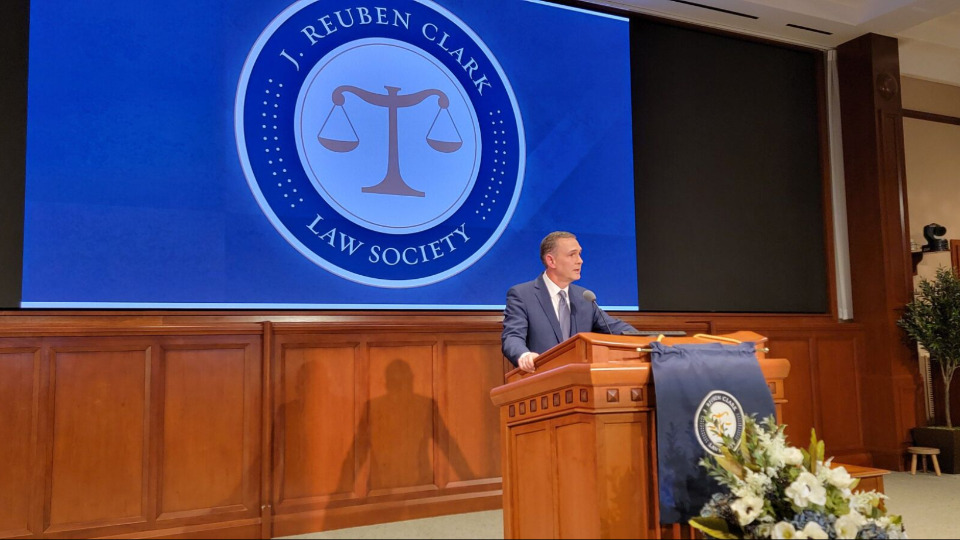
This story appears here courtesy of TheChurchNews.com. It is not for use by other media.
By Joel Randall, Church News
The latter-day gathering of Israel has been a heavenly charge since the early days of the Church, said Elder Alexander Dushku, a General Authority Seventy and general counsel for The Church of Jesus Christ of Latter-day Saints. This gathering to Zion, still emphasized by today’s prophets and apostles, requires unprecedented efforts.
“It will require unprecedented faith, unprecedented organization and unprecedented resources,” he told legal professionals at the 2024 J. Reuben Clark Law Society Annual Fireside on January 19.
And vital to this gathering is “a sturdy, generous, consistent, well-defended religious freedom.”
Elder Dushku — who received a Juris Doctor degree from BYU’s J. Reuben Clark Law School in 1993 — has represented the Church of Jesus Christ on matters of religious freedom for nearly 30 years. He spoke to listeners in the Church Office Building’s main floor auditorium about the responsibilities of Latter-day Saints to build up Zion by embracing and advocating for religious freedom.
“I bear witness of the glorious future of latter-day covenant Israel and of the Church and kingdom of God. ... May we each do all we can to uphold the sacred liberties that allow us to hasten this great work and make that glorious future a reality.”
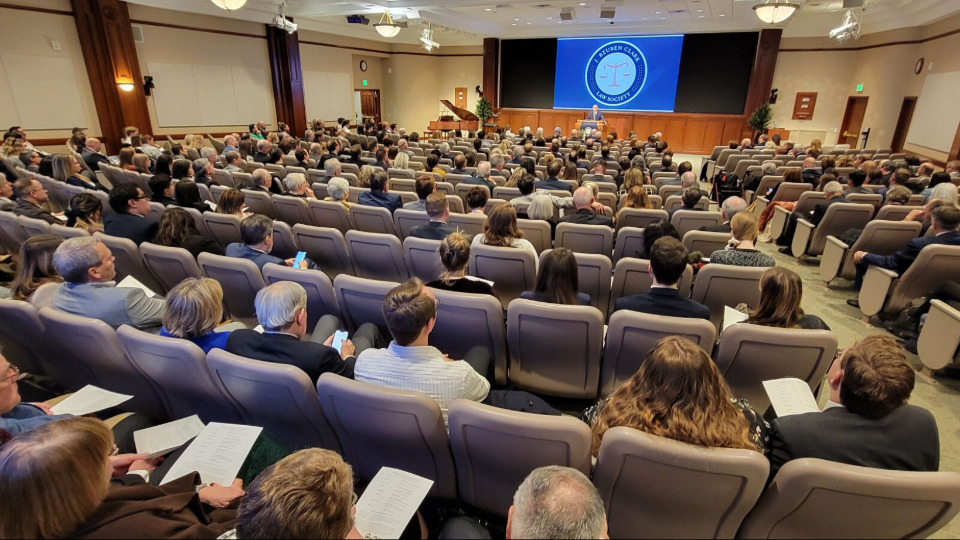
Finding ‘Our Highest and Best Selves’ Through the Lord
Today’s culture, said Elder Dushku, “is becoming more hostile toward institutions generally and toward religious institutions specifically.” For example, the General Social Survey found that the percentage of people in the United States who lack religious affiliation rose from 9% in 1993 to 29% in 2021.
“Since Western culture now sees the realization of individuality as life’s primary purpose, the modern moral imperative is to liberate the self from virtually any constraint,” Elder Dushku said. “Thus, anything that appears to suppress or limit the expression of individuality constitutes, under this way of thinking, an injustice.”
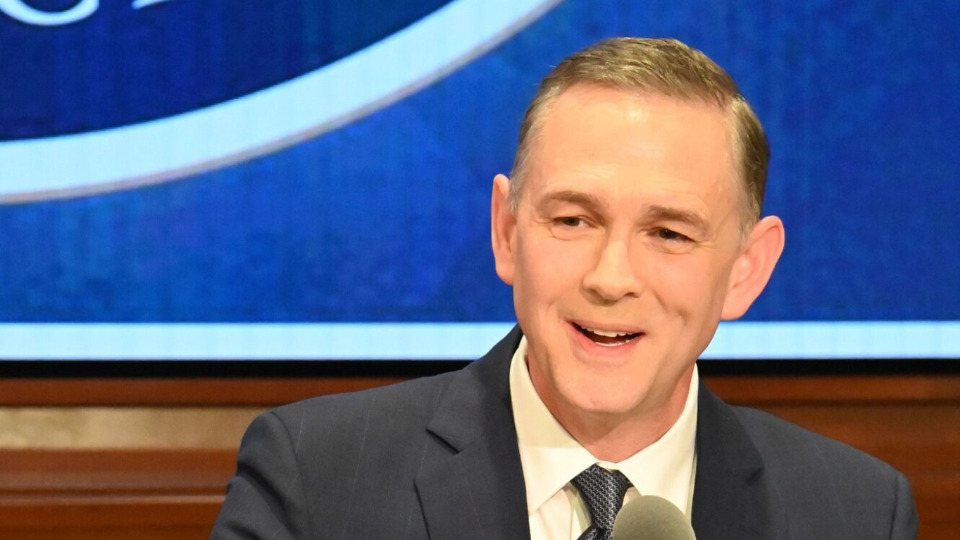
Many people today accordingly may see organized religion as unnecessary and instead seek to define themselves and the purpose of life apart from faith and family. In other words, “every man walketh in his own way, and after the image of his own god, whose image is in the likeness of the world” (Doctrine and Covenants 1:16).
“By contrast,” said Elder Dushku, “Jesus Christ invites us to follow Him and thereby find our highest and best selves through Him. And so the Lord gave us commandments and covenants, precepts and principles, prophets and pastors, to help define us as a peculiar people — as His people — and to guide us back into His eternal presence.”
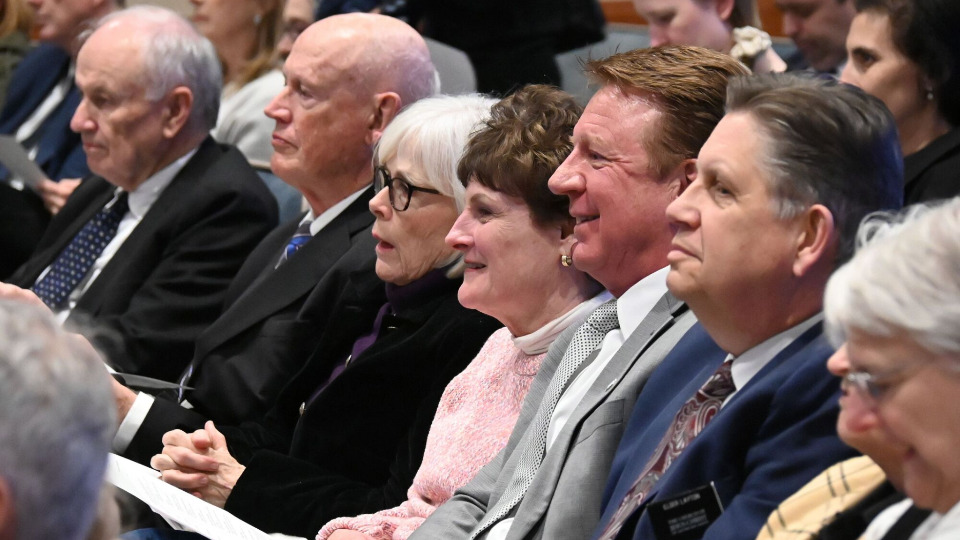
3 Vital Zones of Religious Freedom
Elder Dushku said that Latter-day Saints need to understand and advocate for three zones of religious freedom:
- The freedom “to believe, live and express our faith in our private and family spaces.”
- The freedom “to express our faith and live the gospel openly as equal citizens.”
- The freedom “to gather — to be of one heart and one mind and dwell together in righteousness, as the Lord said of Zion” (see Moses 7:18).
“We have talents, expertise, opinions and experiences to share,” he said. “We have the truth of the restored gospel of Jesus Christ, and we live in societies that desperately need it.”
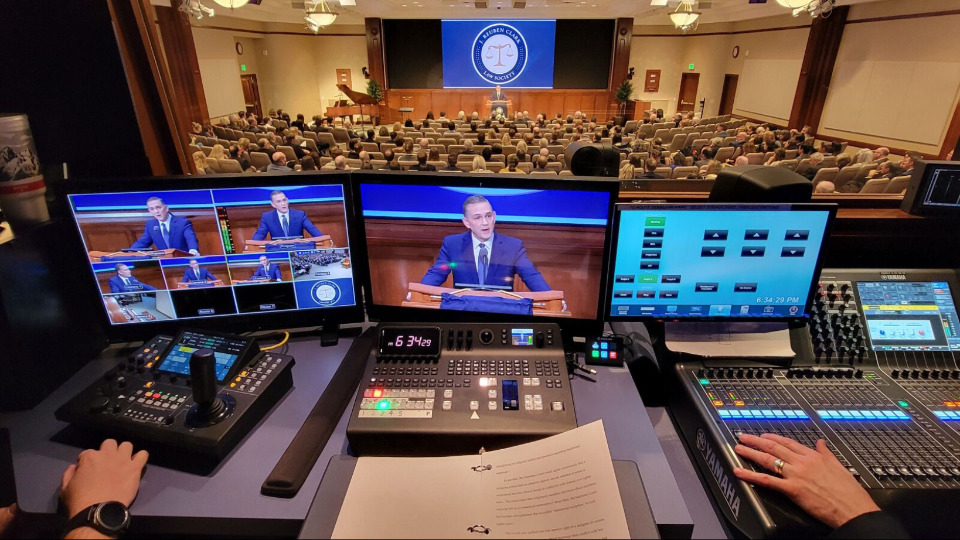
Why Latter-Day Saints Need Zion
Elder David A. Bednar of the Quorum of the Twelve Apostles said in 2020: “If the faithful are not gathering, sooner or later they will begin to scatter. And because gathering lies at the very heart of religion, the right to gather lies at the very heart of religious freedom.”
One of the greatest tasks of defending religious freedom, added Elder Dushku, is therefore to ensure Saints have sufficient freedom to establish Zion. They gather together and become a Zion people, inviting all people of goodwill to join.
“Zion is a refuge from the storm of faithlessness,” Elder Dushku said. “It is a shelter from the spiritual and moral chaos of our time. It is a place and a space where we can gather, unite and be who we are — where the truths we cherish, the standards we live, the practices and patterns that define our lives, and the very gospel language we speak are natural and well understood.”
Building up Zion is not just a hope or far-off possibility, he said. “It is essential to our very survival.” And in order to build up Zion, Latter-day Saints need to uphold religious freedom.
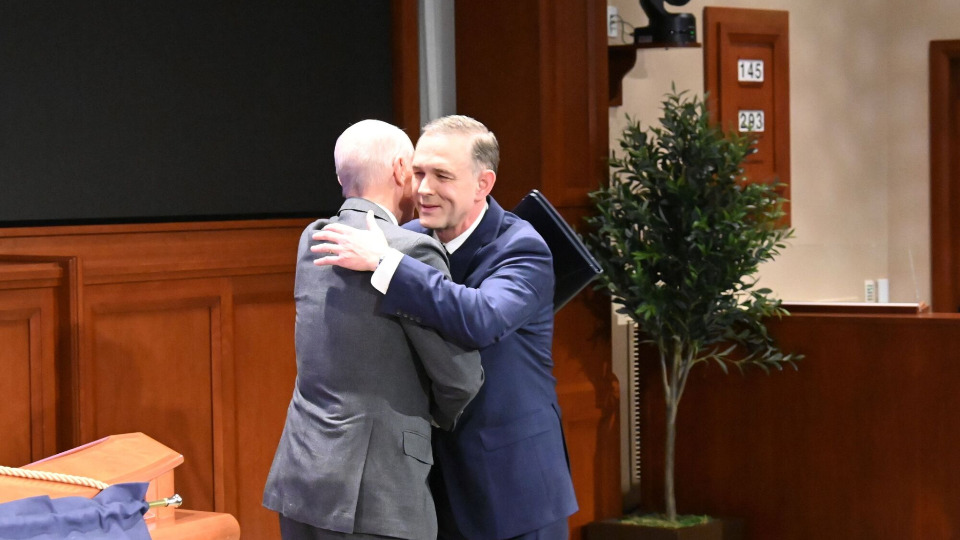
7 Legal Doctrines That Uphold Religious Freedom
Latter-day Saints can reinvigorate and advocate for religious freedom by upholding seven critical legal doctrines, said Elder Dushku to his audience of legal professionals. These legal doctrines are:
- The rule of law
- The principle of nondiscrimination and equality before the law
- The free exercise of religion
- The freedom of speech
- The rights of parents to direct the upbringing of their children
- The right of religious communities to organize
- The autonomy of religious organizations to govern their internal affairs without outside interference
People of faith, he said, can be advocates for a robust religious liberty by defending the rule of law and showing the world the worth of religion. “At a time of widespread skepticism about the value of faith and churches, we can open our mouths and our laptops and bear witness to the immeasurable good religion does. We can be ‘example[s] of the believers’” (1 Timothy 4:12).
- dushku-fireside-carousel-1.jfif
- dushku-fireside-carousel-2.jfif
- dushku-fireside-carousel-3.jfif
- dushku-fireside-carousel-4.jfif
- dushku-fireside-carousel-5.jfif
| Temple Square is always beautiful in the springtime. Gardeners work to prepare the ground for General Conference. © 2012 Intellectual Reserve, Inc. All rights reserved. | 1 / 2 |
Copyright 2024 Deseret News Publishing Company.